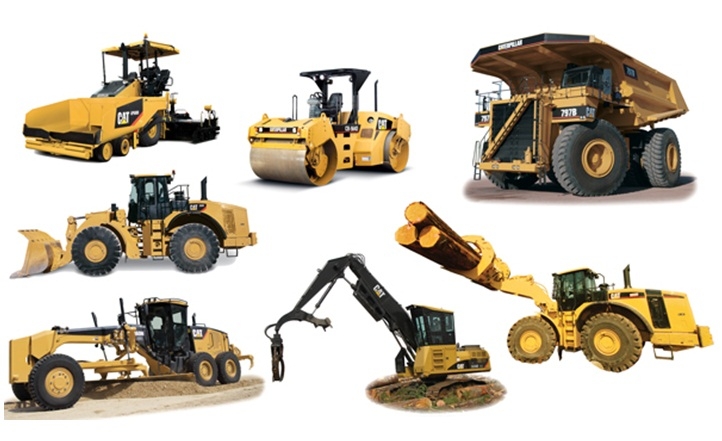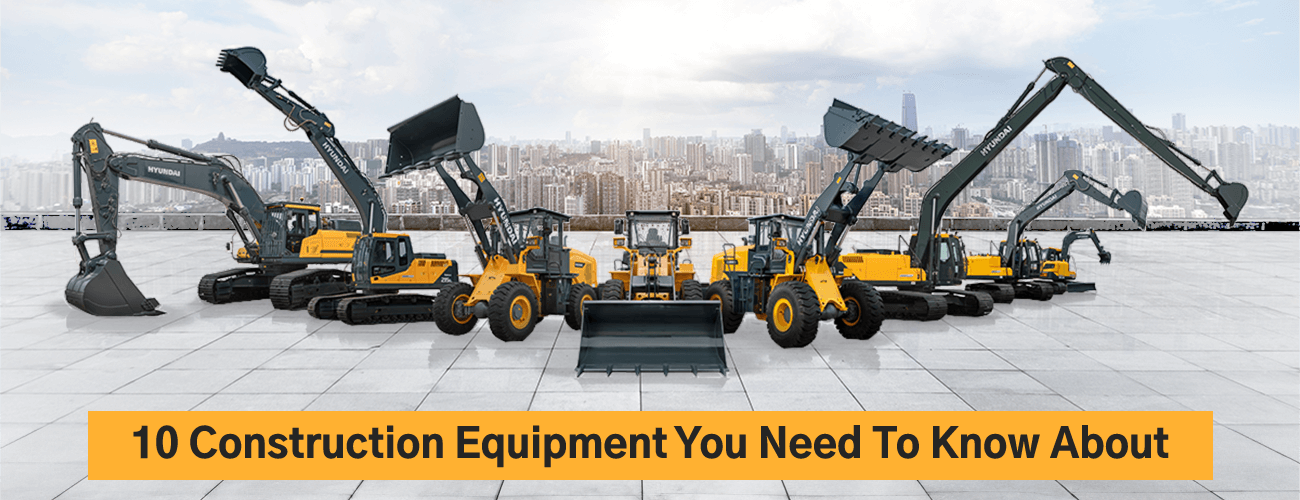Exploring the Financial Perks of Renting Building Tools Compared to Having It Long-Term
The choice between owning and leasing building tools is essential for economic management in the industry. Leasing deals prompt cost savings and operational flexibility, enabling firms to allot resources more efficiently. On the other hand, ownership includes significant lasting financial dedications, consisting of upkeep and depreciation. As professionals consider these options, the impact on capital, job timelines, and modern technology access ends up being significantly significant. Recognizing these nuances is crucial, especially when considering how they align with specific project needs and financial techniques. What elements should be prioritized to guarantee optimal decision-making in this complicated landscape?

Cost Contrast: Leasing Vs. Having
When reviewing the monetary implications of leasing versus owning construction equipment, a complete cost contrast is necessary for making educated decisions. The option between having and leasing can substantially influence a firm's profits, and comprehending the linked costs is critical.
Renting out building devices commonly includes lower upfront expenses, allowing services to assign capital to various other operational demands. Rental costs can collect over time, possibly going beyond the expense of possession if devices is required for an extended duration.
Alternatively, owning building and construction devices requires a significant initial financial investment, in addition to ongoing costs such as financing, depreciation, and insurance policy. While ownership can lead to long-lasting savings, it likewise binds capital and may not offer the exact same level of versatility as renting. Furthermore, owning tools requires a commitment to its application, which may not constantly align with project demands.
Inevitably, the decision to possess or rent should be based on a detailed evaluation of certain task requirements, financial ability, and long-lasting calculated goals.

Upkeep Obligations and expenses
The option between having and renting out construction equipment not just entails monetary considerations but also encompasses continuous upkeep costs and responsibilities. Possessing tools needs a substantial commitment to its maintenance, that includes routine inspections, repairs, and potential upgrades. These responsibilities can rapidly build up, leading to unexpected costs that can strain a budget plan.
On the other hand, when renting out devices, maintenance is typically the duty of the rental company. This arrangement enables professionals to stay clear of the monetary burden connected with damage, in addition to the logistical challenges of organizing repair work. Rental arrangements frequently consist of arrangements for maintenance, suggesting that contractors can concentrate on finishing tasks instead than stressing over tools condition.
Moreover, the varied variety of devices offered for lease allows firms to choose the most recent versions with advanced innovation, which can boost efficiency and efficiency - scissor lift rental in Tuscaloosa Al. By choosing leasings, organizations can avoid the long-lasting responsibility of equipment depreciation and the linked upkeep headaches. Eventually, evaluating maintenance expenses and duties is crucial for making a notified decision about whether to possess or lease building tools, considerably affecting total project expenses and operational performance

Depreciation Effect on Ownership

A significant element to consider in the decision to possess building and construction tools is the impact of devaluation on overall ownership prices. Devaluation stands for the decrease in value of the equipment in time, affected by factors such as usage, wear and tear, and developments in modern technology. As tools ages, its market price decreases, which can substantially affect the owner's financial placement when it comes time to sell or trade the equipment.
For building firms, this depreciation can convert to considerable losses if the tools is not utilized to its max potential or if it ends up being out-of-date. Proprietors must make up depreciation in their economic projections, which can lead to greater general expenses contrasted to renting. Furthermore, the tax effects of devaluation can be complicated; while it might offer some tax obligation benefits, these are often balanced out by the reality of minimized resale value.
Inevitably, the problem of devaluation emphasizes the importance of understanding the long-lasting monetary commitment involved in having construction tools. Business have to thoroughly evaluate exactly how typically they will certainly make use of the tools and the prospective financial impact of depreciation to make an informed decision concerning ownership versus renting.
Economic Flexibility of Renting
Leasing construction tools supplies substantial financial versatility, permitting business to allocate sources more successfully. This flexibility is particularly important in a sector characterized by rising and fall project needs and varying workloads. By deciding to rent out, companies can prevent the considerable resources investment needed for buying devices, preserving cash money circulation for other functional demands.
In addition, renting tools enables business to customize their devices options to certain job requirements without the long-term commitment associated with ownership. This means that companies can my sources easily scale their tools stock up or down based on current and anticipated job needs. Subsequently, this flexibility reduces the threat of over-investment in machinery that may come to be underutilized or outdated with time.
Another economic benefit of renting is the possibility for tax obligation benefits. Rental payments are typically taken into consideration operating costs, permitting for prompt tax obligation deductions, unlike depreciation on owned and operated equipment, which is topped a number of years. scissor lift rental in Tuscaloosa Al. This immediate cost recognition can additionally improve a company's cash placement
Long-Term Job Considerations
When evaluating the lasting requirements of a building organization, the choice in between having and leasing devices ends up being a lot more complex. Key variables to take into consideration consist of project period, frequency of usage, and the nature of upcoming tasks. For tasks with prolonged timelines, purchasing devices might appear advantageous as a result of the potential for reduced overall prices. Nonetheless, if the devices will not be made use of constantly throughout jobs, owning might lead to underutilization and unnecessary expense on storage space, insurance policy, and maintenance.
The construction market is progressing quickly, with new equipment offering improved performance and security features. This adaptability is specifically helpful for services that deal with diverse tasks needing different kinds of equipment.
In addition, monetary stability plays a critical role. Owning devices frequently requires significant capital loading and unloading heavy equipment expense and depreciation concerns, while renting out enables for even more foreseeable budgeting and money flow. Ultimately, the option in between renting out and having ought to be aligned with the calculated purposes of the building and construction service, considering both awaited and current job needs.
Final Thought
Finally, renting building and construction equipment provides significant financial benefits over lasting possession. The minimized ahead of time costs, removal of maintenance obligations, and evasion of devaluation add to boosted capital and economic versatility. scissor lift rental in Tuscaloosa Al. Moreover, rental repayments work as instant tax obligation reductions, better benefiting specialists. Ultimately, the decision to rent out instead of very own aligns with the vibrant nature of construction tasks, enabling for flexibility and access to the most recent devices without the monetary worries associated with ownership.
As equipment ages, its market value reduces, which can substantially influence the proprietor's economic placement when it comes time to useful source trade the tools or offer.
Leasing construction tools offers significant economic adaptability, permitting business to allot sources more successfully.In addition, renting out devices makes it possible for business to tailor their tools choices to certain project demands without the lasting commitment associated with ownership.In final thought, leasing building and construction tools supplies substantial monetary advantages over long-term possession. Ultimately, the decision to rent instead than own aligns with the vibrant nature of building tasks, enabling for adaptability and access to the most recent equipment without the financial concerns associated with possession.
Comments on “Construction Equipment Rentals in Tuscaloosa AL: Whatever You Need for Your Work Site”